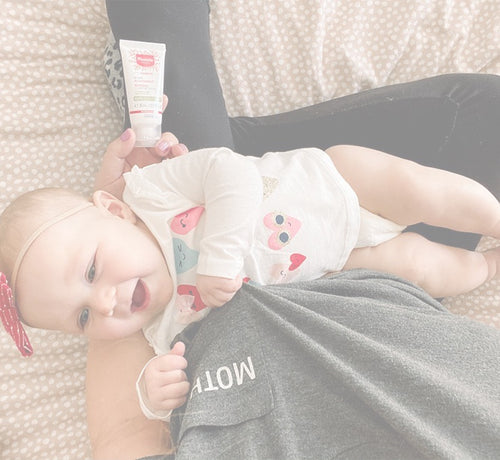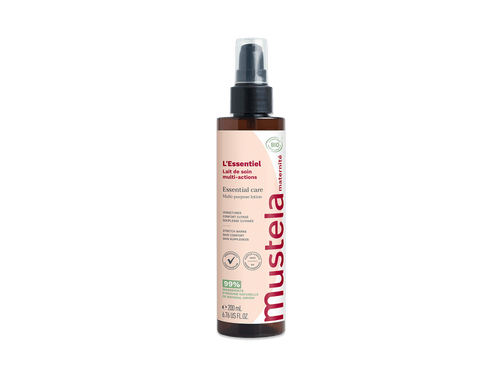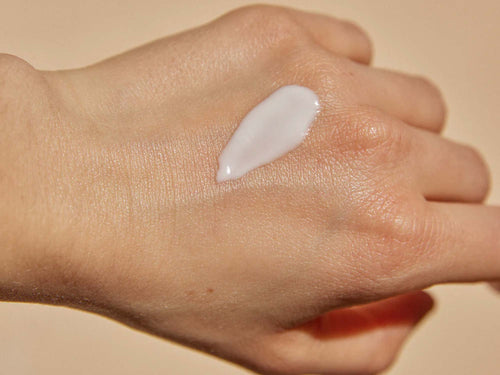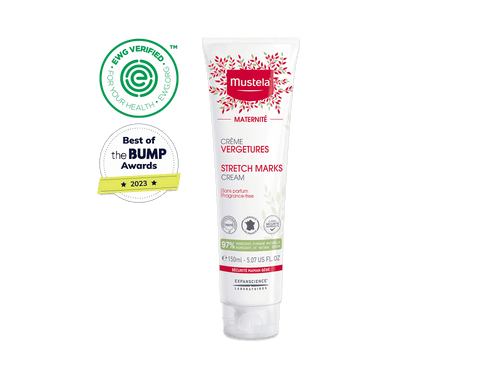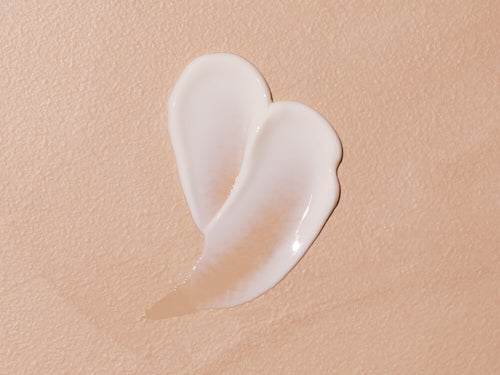Have you just welcomed your little one, or are you expecting a new baby? Maybe you want to breastfeed to maintain the intimate relationship you developed over the past nine months, and you want to do it correctly. Or maybe you haven’t made up your mind yet and want to clear up a few questions. Here’s everything you need to know about breastfeeding, for baby and mother.

BREASTFEEDING IS YOUR CHOICE AS A NEW MOTHER
Although the question of breast or bottle obviously didn’t exist in the past, you have a choice. Whether or not to breastfeed will be one of your very first decisions as a young mother. Maybe you’ve long since made up your mind, or maybe you’re still not sure and need to understand exactly what it means to breastfeed.
Either way, what’s important for you and your baby is that you feel good about your thought process and decision. This is a deeply private choice between you and your spouse, and it should be respected.
With a few rare exceptions, most women can breastfeed their babies. Whether you’re already convinced or not sure yet, you should know that although nursing can create a few constraints, it is a real benefit for both you and your newborn when done right and experienced positively. Don’t hesitate to ask your midwife or lactation consultant for input on your decision.
A SOURCE OF BENEFITS FOR YOU AND YOUR BABY

Your breastmilk is suited to your baby’s nutritional needs; its composition evolves as your baby grows, and even throughout the course of feedings during the day. The WHO (World Health Organization) even recommends exclusive breastfeeding until a baby reaches 6 months. However, breastfeeding is still recommended, even if it's for shorter periods because the infant formulas sold in stores don’t share all the characteristics of breastmilk. In addition to this biological fact, the tender, nutritive act of nursing obviously creates a special connection between mother and baby.
For your baby:
- Breastfeeding is the main factor in providing lasting protection for your baby’s health, ensuring that he receives all the nutrients he needs to grow and develop. Although the exact composition of breastmilk varies between mothers, it contains precise proportions of fats, proteins, and carbohydrates along with exactly the right amount of vitamins and mineral salts.
- Your milk contains a number of antibodies, naturally protecting your baby from the risk of infectious diseases (bronchiolitis, bronchitis, ear infections, sore throats, etc.) as well as from certain allergies, including food allergies.
- According to the latest research, breastmilk also contributes positively to a child’s weight, limiting the risk of obesity during childhood and adolescence.
For you:
- Nursing while holding your baby close to you is a unique experience that not only helps build a deep bond between you, but also releases hormones that make you feel good between feedings.
- By triggering uterine contractions, nursing helps your uterus regain its tone and shrink back to its usual size more quickly.
- Various studies have shown that breastfeeding is a real asset to your health as a new mother. It drastically reduces the risk of developing osteoporosis.
- By breastfeeding, you’ll get your figure back more quickly: you burn approximately 800 calories for every liter of milk produced.
- Finally, breastfeeding simplifies your life: no bottles to prepare or emergency runs to buy powder on a Sunday evening.
WORRIED ABOUT THE FIRST FEW NURSING SESSIONS? DON’T BE

So you’re convinced of the benefits of breastfeeding, but, like all new mothers, you have a lot of questions about how to start and continue milk feeding? Don’t worry, there are just a few little things to keep in mind as you begin breastfeeding...
Yes, you will have enough milk.
Milk production depends primarily on your baby’s needs. The baby’s sucking stimulates the release of prolactin and oxytocin, the two main hormones involved in lactation. Your breasts have been preparing to give milk since the start of your pregnancy, so have no fear: you will have milk. And the more baby nurses, the more milk you’ll have.
Still, at birth and during the first two to three days, your breasts produce colostrum rather than milk. This thick yellowish-orange fluid has exceptional nutritional and anti-infection properties. It contains everything your baby needs during his first days of life, including antibodies to protect him from any microbes he has already encountered after leaving your belly!
That’s why it’s so important at first to offer the breast to your baby anytime he seems awake. Let baby nurse as long as he wants and make sure that he’s sucking effectively by listening for regular swallows.
These frequent feedings will stimulate milk production and promote your milk coming in 48 to 72 hours after childbirth. Your breasts will swell, harden and become slightly painful. By nursing your infant as soon as your milk comes in and very frequently over the next few days, you’ll relieve your breasts and naturally establish your milk supply.
Yes, your baby will find your breast
Whenever possible, your baby will be placed on your stomach right after birth, and the very first feed will take place within two hours after he is born. You will then see your newborn spontaneously seek the breast by moving his body and turning his head right and left on your chest until he latches on to a nipple.
This is a perfectly natural reflex for him, since the scent given off by your nipple is similar to the smell of the amniotic fluid he spent the last nine months living in.
Let your baby find your nipple on his own without holding his head or pulling him against your breast, which could cause him to pull back. When baby has found your breast, let him nurse as long as he wants.
However, if a Caesarean section or other complication prevents you from breastfeeding this soon, don’t worry. The reflex for seeking out a nipple will just be slightly reduced, and you can gently guide your baby towards your breast and place your nipple in front of his mouth to nurse a little later.
Just as you need to trust your baby to find your breast, you should also trust him to feed the right number of times each day. This will vary from one baby to another. On average, newborns want to nurse seven to eight times during a 24-hour period, but some demand up to 12 feedings or even more. Trust your baby and simply meet its needs, whether large or small!
DEVELOP THE RIGHT HABITS IN EVERYDAY LIFE

Back at the house, you’ll gradually get your bearings and work out how to continue breastfeeding in complete comfort for both yourself and your little one. Although this nurturing relationship is highly personal, there are a few tips that are useful for everyone:
Anticipate and respect your baby’s desires
For the first weeks, it goes without saying that you’ll be constantly close to your baby, so offer the breast every time he wakes up. Don’t wait for baby to cry; instead observe the signs indicating that he wants to nurse: if he turns or raises his head, opens his mouth, sticks out his tongue or sucks whatever he comes into contact with, that means he’s ready to nurse. Let your baby determine how often and how long to nurse as well. Leave him the freedom to decide without setting a pre-determined interval between feeds. Don’t panic or get impatient, whether a feed lasts 10 minutes or 45: some babies are fast, and others like to take their time. And if your baby is born at term and in good health, there’s no need to wake him up for a feed even if he sleeps for six hours straight or more!
Get comfortable!
Of course, always remember to wash your hands before nursing. But don’t get carried away with hygiene for your breasts, which would eliminate the antiseptic properties and scent of your nipples and disturb your baby! A shower or two a day is plenty.
Above all, make sure you’re comfortable while nursing. Feeding takes up several hours a day during the first few months, and an uncomfortable position can lead to significant back pain! As much as possible, sit in a quiet spot, either lying on your side with your baby facing you or seated leaning against pillows with your baby lying in your arms or, better, on a nursing pillow. The more attentive you are to your own comfort, the more nursing sessions will be a pleasant break for both you and your baby.
Help your baby find the right position

Even if you have a preference, during the first few weeks, regularly give the baby both breasts to establish your milk supply. Let him finish the first breast before offering the other... which he may or may not take. Then switch at the next feed. Above all, pay attention to his position while breastfeeding.
Your baby should be placed so that his face is facing yours and his mouth level with the nipple; he should not have to turn his head. Then place the nipple in front of baby’s mouth, making sure that his head is tilted backwards. Let him open his mouth wide and latch onto the nipple himself, making sure he latches on to the entire areola, not only the nipple.This is essential to avoid the formation of painful cracks and to ensure productive feedings.
Remove your baby gently from the breast if he doesn’t latch on correctly, then stroke the groove between the nose and upper lip (the philtrum) with your nipple. The baby will reflexively open his mouth wide and you can re-offer the breast in a better position.
Finally, make sure that baby’s chin is right up against the breast so that his nose is free. With these tips in mind, you can simply enjoy this special time with your baby, without setting any time limits or trying to determine how much milk your baby has swallowed. Your little one knows what he needs!
After nursing, care for your baby and your breasts

After the feeding, if your baby hasn’t fallen asleep, place him upright against your shoulder and gently pat his back in case he needs to burp. If your baby falls asleep, you can put him back to bed without waking him up. You should think of yourself after each feed as well. Applying a specific nursing balm to your nipples will help protect their delicate skin.
Mustela's soothing Nursing Comfort Balm will ease discomfort and moisturize sensitized nipples. Plus, it’s environmentally friendly, made of 100% naturally derived ingredients, and safe for both you and your baby during prenatal and postpartum pregnancy.
Check that you are breastfeeding effectively
Don’t worry, your instinct will warn you if there are problems with your breastfeeding. In the first few weeks, always avoid giving a top-off bottle: this could reduce your milk supply, cause your nipples to suffer from less stimulation, and disrupt your baby, making it more difficult for him to nurse effectively. There are several ways to know that nursing is going well, such as:
- While nursing, your baby sucks eagerly and swallows regularly. Keep in mind that when the baby starts feeding, he’ll swallow each time he sucks, but then less frequently as the amount of milk decreases.
- At the end of nursing, your satiated baby releases your breast and acts drowsy, with his skin a healthy pink and his muscles totally relaxed. Your baby’s diapers are very wet and your baby has four to eight golden yellow and grainy bowel movements each day during the first weeks of life. As time goes on fewer bowel movements occur, sometimes with only one or two a week or even fewer. As long as they remain soft and the diapers are wet with urine, there’s no need to be concerned about constipation.
- Your baby is gaining weight regularly. It’s not necessary, however, to weigh your baby daily or, worse yet, to weigh him before or after each feeding. That would serve no purpose other than to cause you anxiety. If your baby is healthy, the monthly weigh-in by the pediatrician is more than sufficient. Still, if it makes you feel better, you can weigh the baby yourself once a week. If you do so more often, the weight fluctuations will be insignificant.
THE RIGHT HABITS TO PROTECT YOUR BREASTS

Sometimes breastfeeding comes with some minor discomfort. By anticipating it, you’ll save yourself needless worry and know how to respond to make sure that nursing remains a pleasure for both of you.
Don’t be bothered by leaking
In the first weeks of breastfeeding, it’s common for milk to leak spontaneously. This can happen when you hear a baby cry, when your baby hasn’t nursed for several hours, when you’re thinking about your baby, during sexual relations or when you feel a strong emotion. These leaks can be annoying, but they are no cause for concern. Simply place a nursing pad in your bra to absorb them and then don’t worry.
Avoid cracks and chapping
Cracks and chapping, which many new mothers fear, occur more frequently among women with light skin and hair.
They generally occur only during the first few weeks of breastfeeding and can range from just an irritated nipple to a fissure, which can make nursing sessions very painful indeed. Again, don’t worry: these are easy to avoid by taking a few precautions:
- Don’t remove the breast skin’s protective sebum by washing too frequently! One or two showers a day with a gentle cleansing gel is plenty.
- Make sure your baby is positioned correctly, facing the breast with his mouth wide open so he can latch onto the entire areola.
- After the feeding, dry your nipple and apply a special nursing repair cream.
- If cracks have formed despite your efforts, let your breasts air out as long as possible and regularly spread a special nursing repair cream on your painful nipples.
Avoid engorgement
The painful hardening of your breasts you’ve heard of is not inevitable. The best way to avoid it is to nurse your baby as often as possible starting as soon as possible, because engorgement is most frequent when your milk first comes in. If engorgement persists, you can hand-express breast milk by gently massaging the areola between your fingers. You may want to express milk under a warm shower, which helps the milk flow more easily. If you don’t succeed, try using a pump, and continue until your breasts soften and feel comfortable again.
Respond appropriately to mastitis
Sometimes, new mothers may feel a large and very painful swelling of the breast, which becomes red and hot. At the same time, they may also experience flu-like symptoms such as extreme fatigue and aches and pains. If you notice these symptoms, immediately take the following steps:
- Nurse your baby as often as possible, especially on the painful side.
- Rest in bed, with your baby beside you.
- Apply wet, hot towels to your painful breast, or use ice packs (wrapped in a cloth to avoid burns) if cold is more effective at relieving the pain.
- If you see no improvement within 24 hours, call your doctor, who will probably prescribe an antibiotic.
You do not, however, have to stop breastfeeding when you have mastitis.


